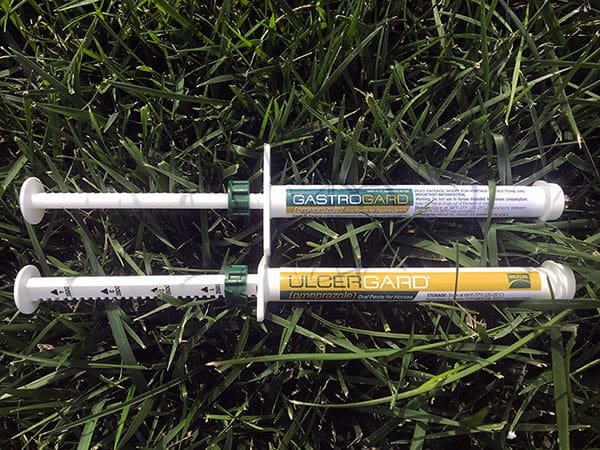Omeprazole Causes Only Minor Equine Microbiota Changes

After receiving seven days of oral omeprazole at a normal dose for gastric ulcer treatment (4 milligrams/kilogram), eight healthy adult research horses showed, on average, only minor changes in the composition of the microbiota in their digestive tract, said Carla Cesarini, DVM, LV, PhD, Dipl. ACVIM, ECEIM, a veterinarian specializing in internal medicine at the Equine Clinical Department of the Faculty of Veterinary Medicine of the University of Liege, in Belgium.
These findings contrast with those found in other species, particularly humans and dogs, which might experience “profound” changes in the balance of microorganisms—primarily bacteria—in the gut while taking omeprazole, said Cesarini. In those species, intestinal microbiota changes leave patients susceptible to gastrointestinal infections of disease-causing bacteria such as Clostridioides difficile (previously called Clostridium difficile), Salmonella spp, Shigella spp, and Campylobacter spp, she said.
Cesarini and her colleagues tested fecal samples, performed gastroscopies, analyzed samples of the stomach’s juices, and biopsied the gastric mucosa of the eight research horses before and after seven days of omeprazole treatment. All the horses lived on the same farm and ate the same forage, with no cereal complements.
They found that the fecal microbiota was similar across all horses and showed no significant changes after omeprazole treatment, Cesarini said. The pH levels became much less acidic in the stomach following treatment, which seemed to contribute to shifts in the microbiota living in the glandular mucosal walls of the stomach, namely a drop in diversity and an increase in the bacterial species Clostridium sensu strictu_1.
Clostridium sensu strictu_1 isn’t known to cause issues in horses, and it’s very distantly related to the more worrisome C. difficile, which causes diarrhea, she said. So the increase in Clostridium sensu strictu_1 doesn’t seem to be concerning.
However, that’s just the change they found on average across the study group. Individually, the horses each had unique microbiome shifts within their stomachs. Because the shifts were so specific to each horse, the researchers could not tie them to significant changes favoring particular microorganisms. Even so, it’s worth noting that in some individuals omeprazole does affect the equine stomach microbiota—just in ways scientists have yet to understand.
“Following our results, oral omeprazole treatment does not seem to have major effects on gastrointestinal microbiota in most healthy horses,” Cesarini explained. “Nevertheless, the administration period used in the study was shorter than most therapies for gastric ulcers in the horse, which usually last three to four weeks.”
While the study only focused on a single week of omeprazole treatment, a week is generally sufficient to see significant shifts in the microbiome after omeprazole treatment in other species, she said.
Nonetheless, Cesarini cautioned that more research is needed and owners and practitioners should not use omeprazole, or any drug, lightly.
“Owners and practitioners must remember that gastric ulcers in the horse have probably a multifactorial origin,” she said. “Its treatment should not only rely on medication that rises gastric pH, but on management changes as well (nutrition, environment, lowering stress levels), so that the duration of the medical treatment can be shortened to the minimum necessary and, hence, minimize the risks of any potential side effects.”

Written by:
Christa Lesté-Lasserre, MA
Related Articles
Stay on top of the most recent Horse Health news with















